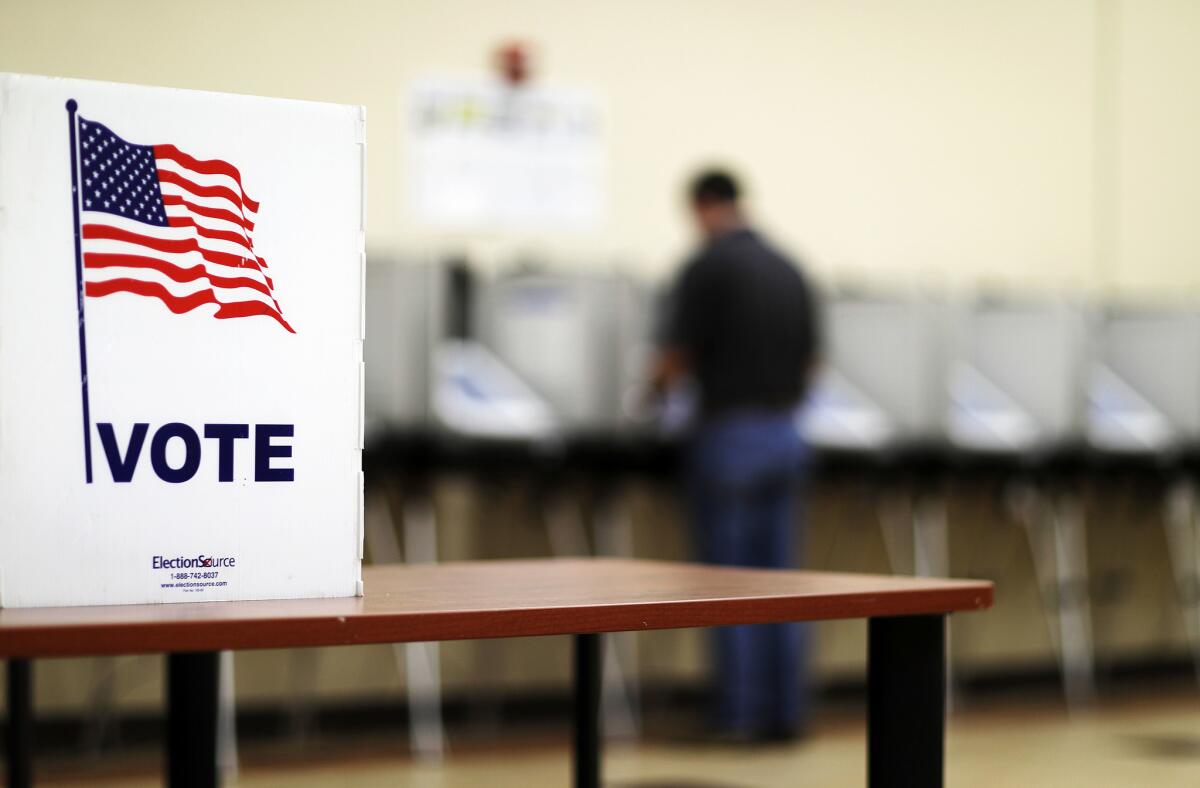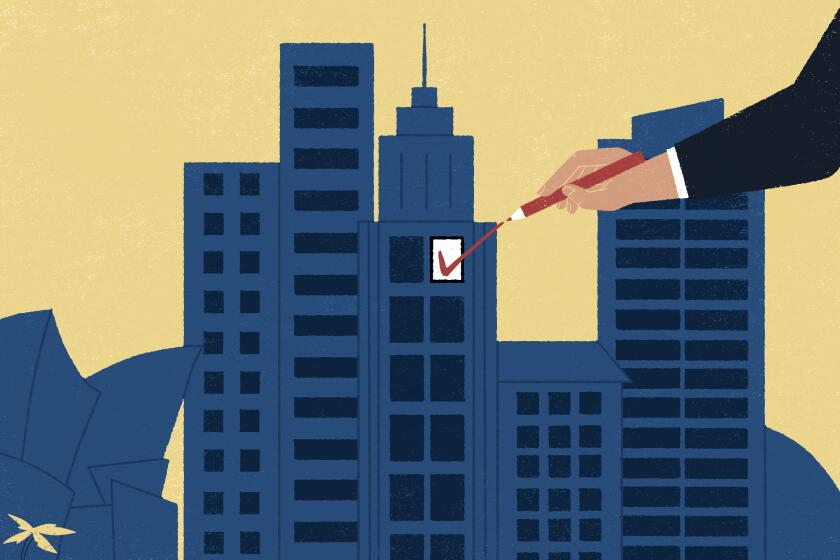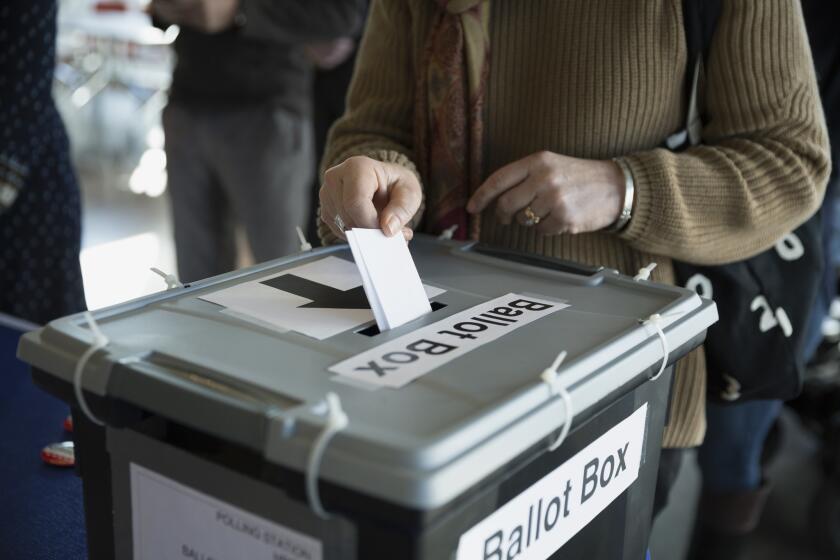Yes on Proposition 18: Some 17-year-olds should be allowed to vote

- Share via
The 26th Amendment, adopted in 1971, lowered to 18 the age at which the right to vote kicks in. But it didn’t say states could not move the voting age lower if they wanted, and to date some 20 states have adopted laws that allow people younger than 18 to vote in some circumstances.
California voters have the chance this year to decide whether they, too, will allow 17-year-olds to vote — in primaries and special elections preceding November general elections in which they will be eligible to vote as 18-year-olds. That proposal has more potential upside than downside, so we urge a yes on Proposition 18.
One of the persistent weaknesses in our democracy is lack of civic engagement and participation in elections, particularly among younger voters. Presidential election cycles tend to drive the highest turnout, yet those overall numbers aren’t very impressive. In the 18 presidential elections since the end of World War II, turnout among eligible voters has exceeded 60% only seven times. Midterm elections, primaries and local elections tend to draw even fewer voters.
What relatively little research that has been done — and some of it measures effects in other countries — suggests that minors who are allowed to vote in elections before age 18 tend to develop more reliable voting habits as they grow older. That may be because those who do vote at a younger age might be more interested in politics and civic engagement, so it becomes a bit self-fulfilling. But it’s still a step worth taking.
Here are the Los Angeles Times’ editorial board endorsements for president, California ballot measures and more.
In California we have an added reason to let some 17-year-olds vote — our top-two primary system. Except for presidential elections, voters in California primaries don’t select which candidates will represent the various political parties on the November ballot, but rather they select from all the candidates which two will face off in November. (In some races, there won’t even be a runoff if a candidate gets more than 50% of the vote in the primary.) It makes sense that the teens who will be eligible to vote in a general election should also help decide whose names will be on that ballot.
Parolees should get their right to vote restored while they are on parole.
It is true that under Proposition 18, some 17-year-olds would be able to vote in local elections, such as those for school bonds and other tax proposals; local races, such as district attorney and city council, that enable candidates who get more than 50% of the vote to avoid a November runoff; and in rare special elections to fill seats in the Legislature and Congress that have become vacant through resignation or death. The Public Policy Institute of California estimated that this limited expansion of the electorate has its biggest potential impact on such races, and could even swing some results. Maybe. But that would take effort and organization to engage young voters in such an election. Which is the point. (Besides, in the case of local races, the slim chance that a candidate might earn a majority in the primary is no reason to freeze out teens who would be eligible to help decide them in November.)
Opponents also argue that letting 17-year-old high school students vote in school bond elections could amplify the influence of teachers unions, since teachers have a captive audience to whom they could proselytize. That seems far-fetched. Anyone who has lived in a house with a teenager knows that rebelling against what adults tell them to do is a rite of passage. Besides, the same argument was made more than a century ago to deny women the right to vote. Husbands and fathers, the nation was warned, would have inordinate influence. Nevertheless, women persisted, and the nation was made stronger for it.
It’s also worth noting that there will be some added costs to holding elections — maybe up to $1 million statewide, according to a Legislative Analyst’s Office report. But democracy is expensive. And the upside of letting the eligible 17-year-olds vote is potentially significant, if it does indeed help create a stronger sense of civic duty and participation in elections. We strongly urge a yes vote on Proposition 18.
More to Read
A cure for the common opinion
Get thought-provoking perspectives with our weekly newsletter.
You may occasionally receive promotional content from the Los Angeles Times.











